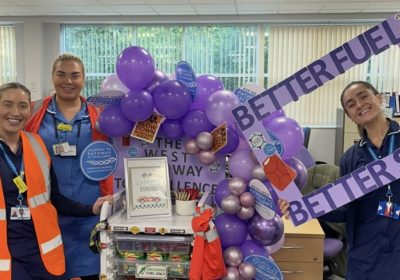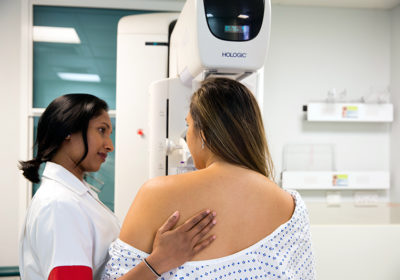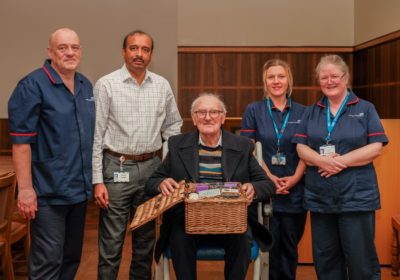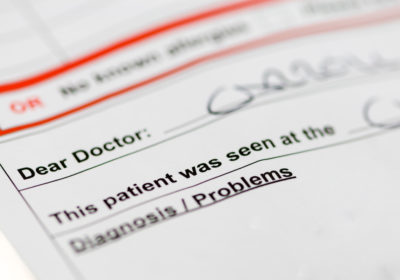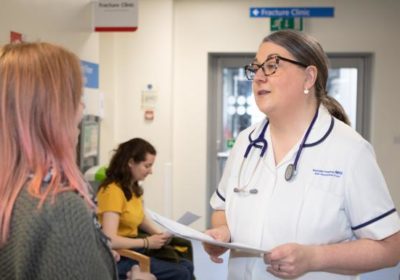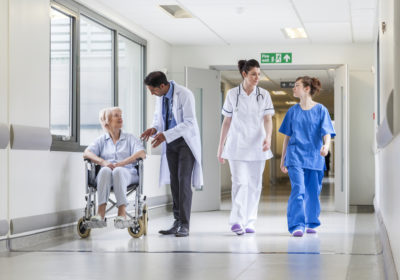South Tyneside and Sunderland NHS Foundation Trust has joined other NHS services across the region to ask people to plan ahead.
It comes in the lead up to the May Day Bank Holiday, May 1, and then Monday, May 8, when the UK will mark the coronation of King Charles III.
The NHS is also urging people to keep in mind there is also a third Bank Holiday next month, on Monday, May 29.
The Trust is asking people to get their repeat prescription orders in and stock their medicine cabinet with essentials such as painkillers, plasters, indigestion remedies and anti-diarrhoea medicine.
It is hoped this means they will be able to enjoy themselves safely over the holiday weekends.
The advice is also aimed at helping patients avoid any unnecessary visits to A&E.
Online help is available round the clock via NHS 111 while parents and can use excellent resources such as The Little Orange Book or Healthier Together websites for information and advice.
Dr Shaz Wahid, the Trust’s Medical Director, said: “We want everyone to enjoy the bank holiday weekends and have peace of mind that if they do feel unwell, they know where to go to access the right advice and care.
“Our Emergency Departments are always busy during Bank Holidays. We want to make sure our teams are not put under even more pressure so they can deal with those who are most seriously ill. We need the public’s help to make sure we can do this.
“One of the best things we can all do is be prepared. Check to see if you have enough of any medications you take to get you through the four days and beyond.
“GP surgeries will close from both Fridays and reopen on the Tuesday and it can take up to 48 hours for your practice to issue your prescription, so it’s a good idea to get ahead.
“Some pharmacies will still be open and there’s a list online to find where they are if you need to speak to someone. Pharmacists can be a huge help for advice and support for lots of conditions and ailments.
“It’s always a good idea to make sure your cupboard is stocked with items to help if you’re not feeling well or have a minor injury. You can also speak to a local pharmacist who will be able to assess you and suggest a range medications for minor illness and injury.
“We know people might be busy doing DIY, out in the garden or enjoying outdoor activities. The key things is too take care and reduce your alcohol intake wherever possible.
“Alcohol sometimes leads to people needing the help our emergency services. Drinking moderately means less likelihood of spending your weekend in our A&E.”
Anyone who needs emergency care should call 999 or go to their nearest Emergency Department.
People should only do this if someone has a serious, life-threatening emergency, such as:
- signs of a heart attack – chest pain, pressure, heaviness, tightness or squeezing across the chest
- signs of a stroke – face dropping on one side, cannot hold both arms up, difficulty speaking
- sudden confusion (delirium) – they cannot be sure of own name or age
- suicide attempt – by taking something or self-harming
- severe difficulty breathing – not being able to get words out, choking or gasping
- choking on liquids or solids
- heavy bleeding – spraying, pouring or enough to make a puddle
- severe injuries after a serious accident or assault
- seizure (fit) – shaking or jerking because of a fit, or unconscious (cannot be woken up)
- sudden, rapid swelling of the lips, mouth, throat or tongue
British Sign Language (BSL) speakers can make a BSL video call to 999.
Deaf people can use 18000 to contact 999 using text relay.
Anyone who is concerned about how much they, or someone they know, drinks, there is lots of help available.
Speak to your GP, find your local alcohol support service, or contact Drinkline on freephone 0300 123 1110 or Alcoholics Anonymous on 0845 769 7555.

